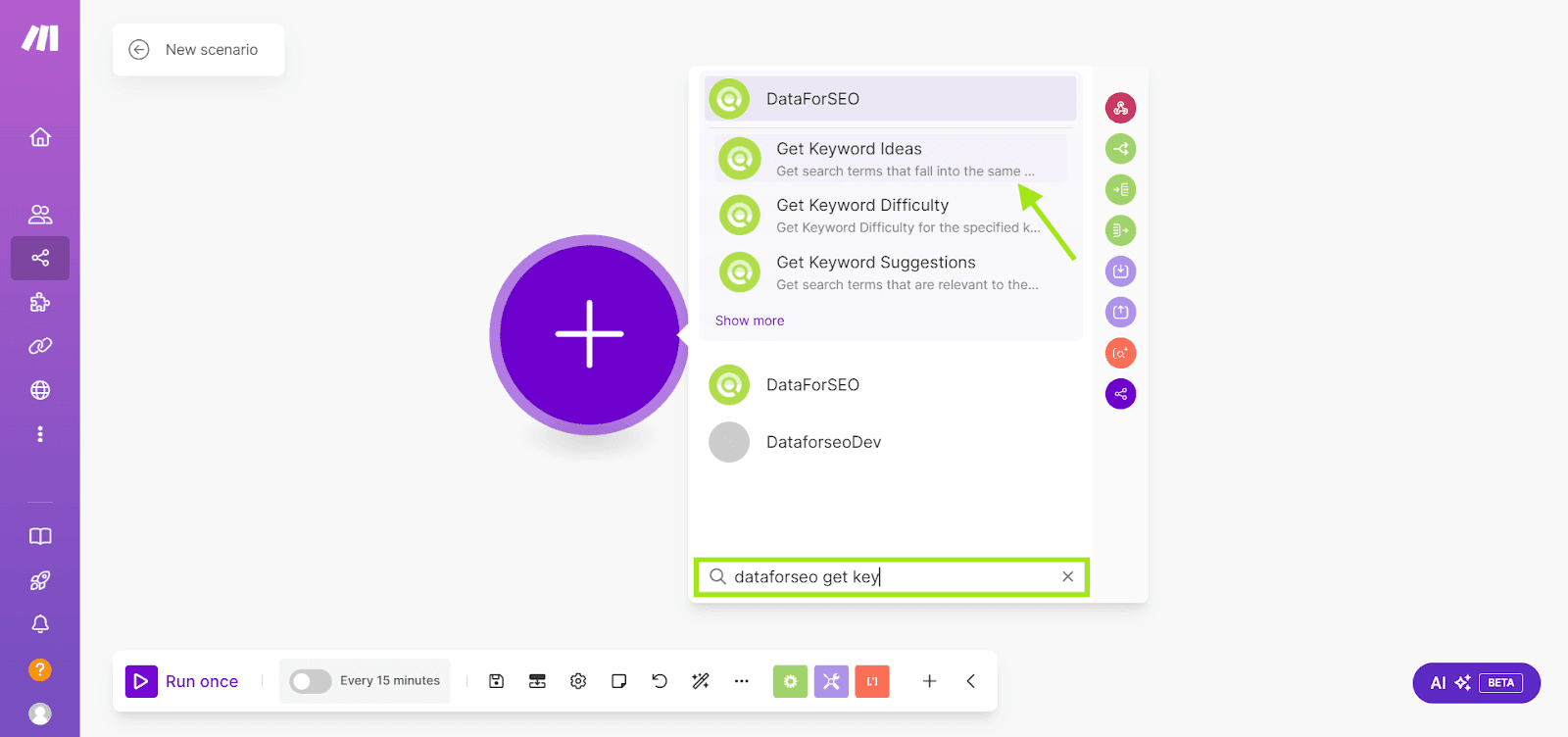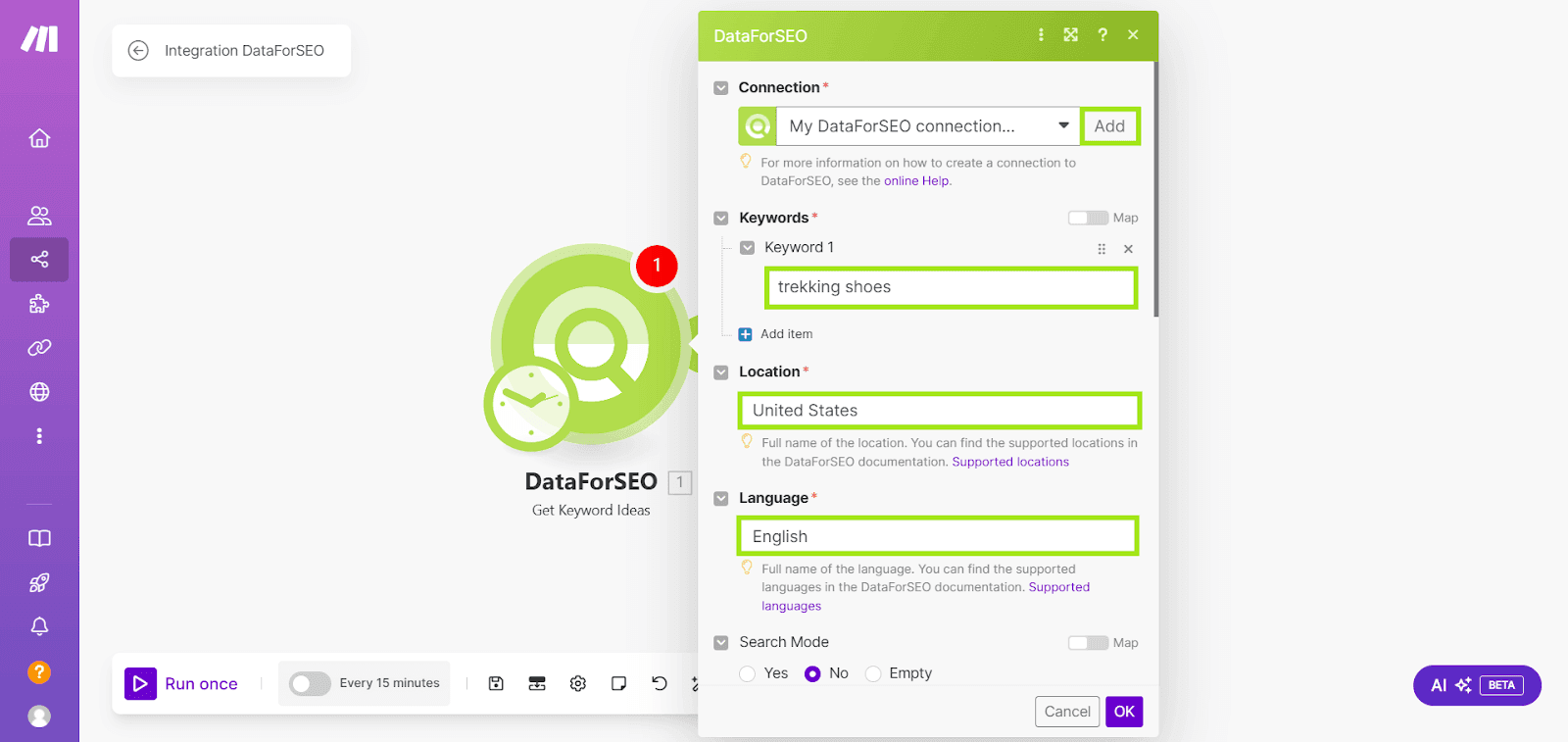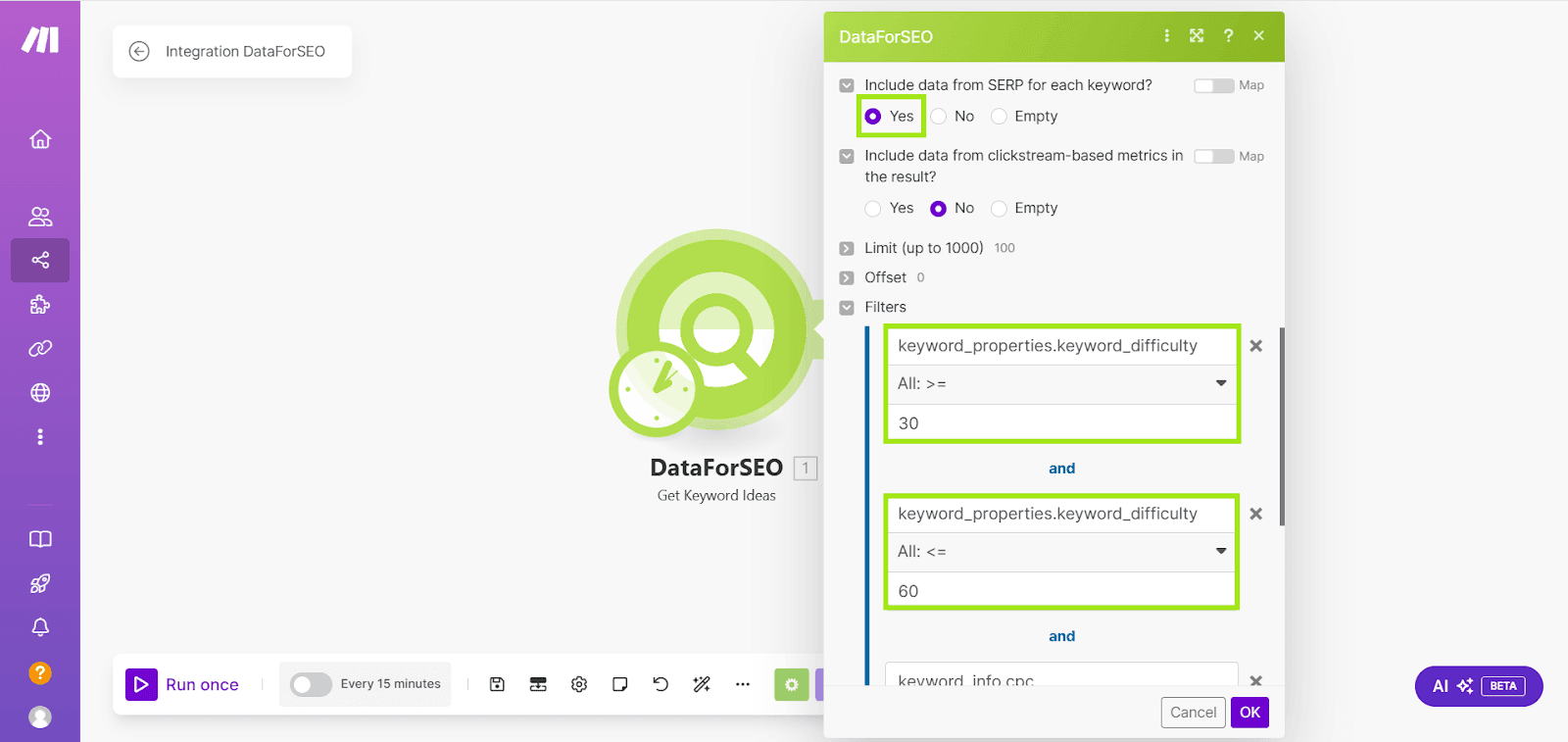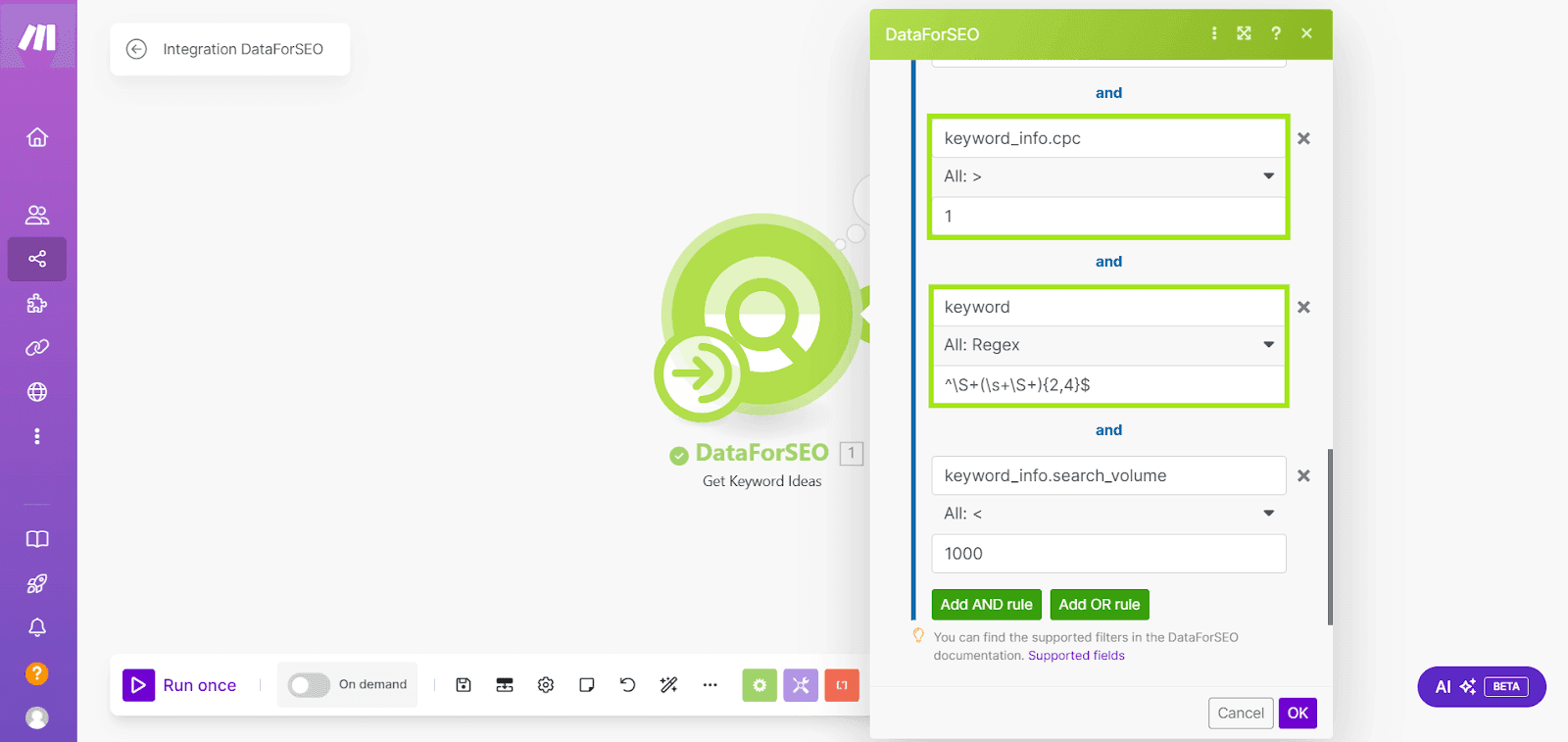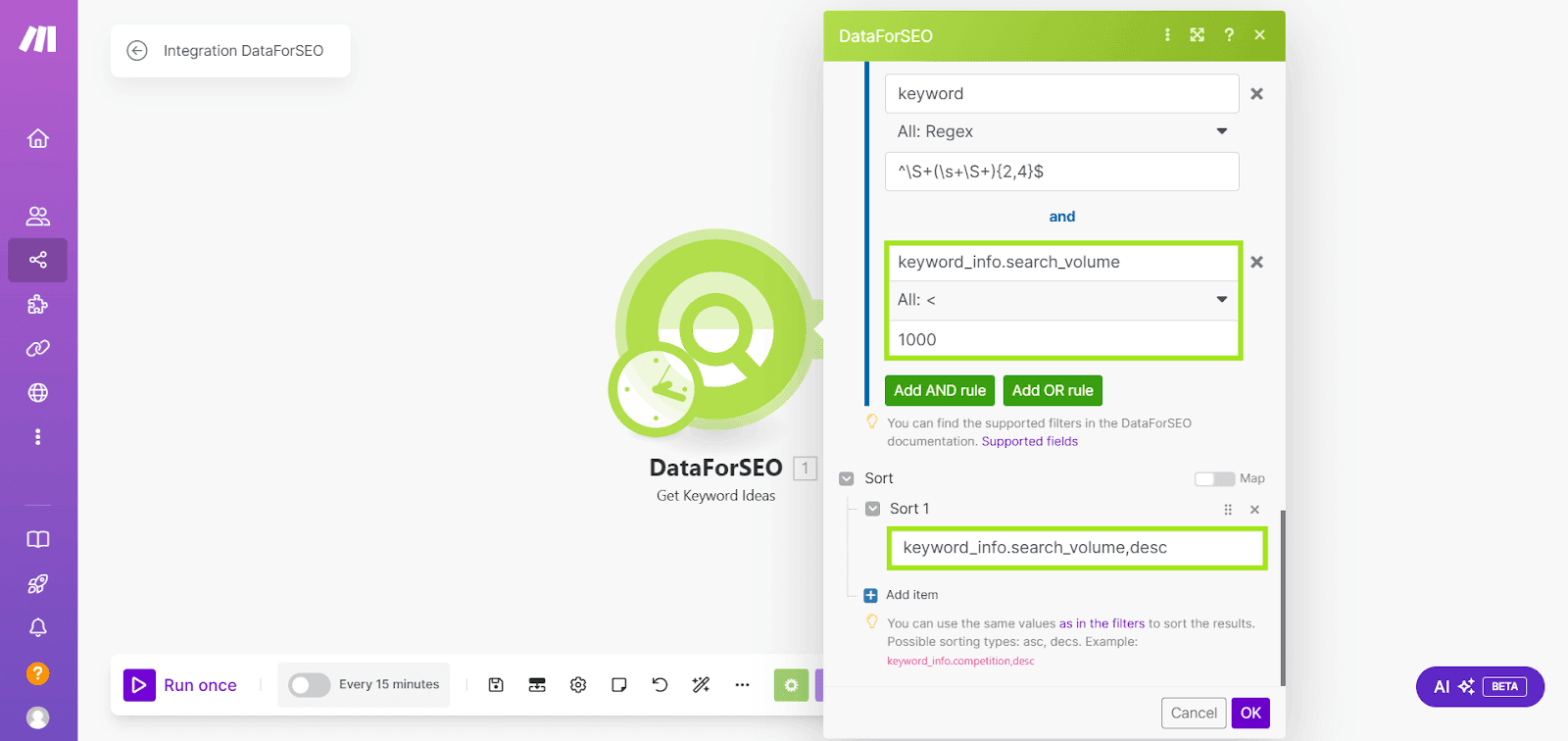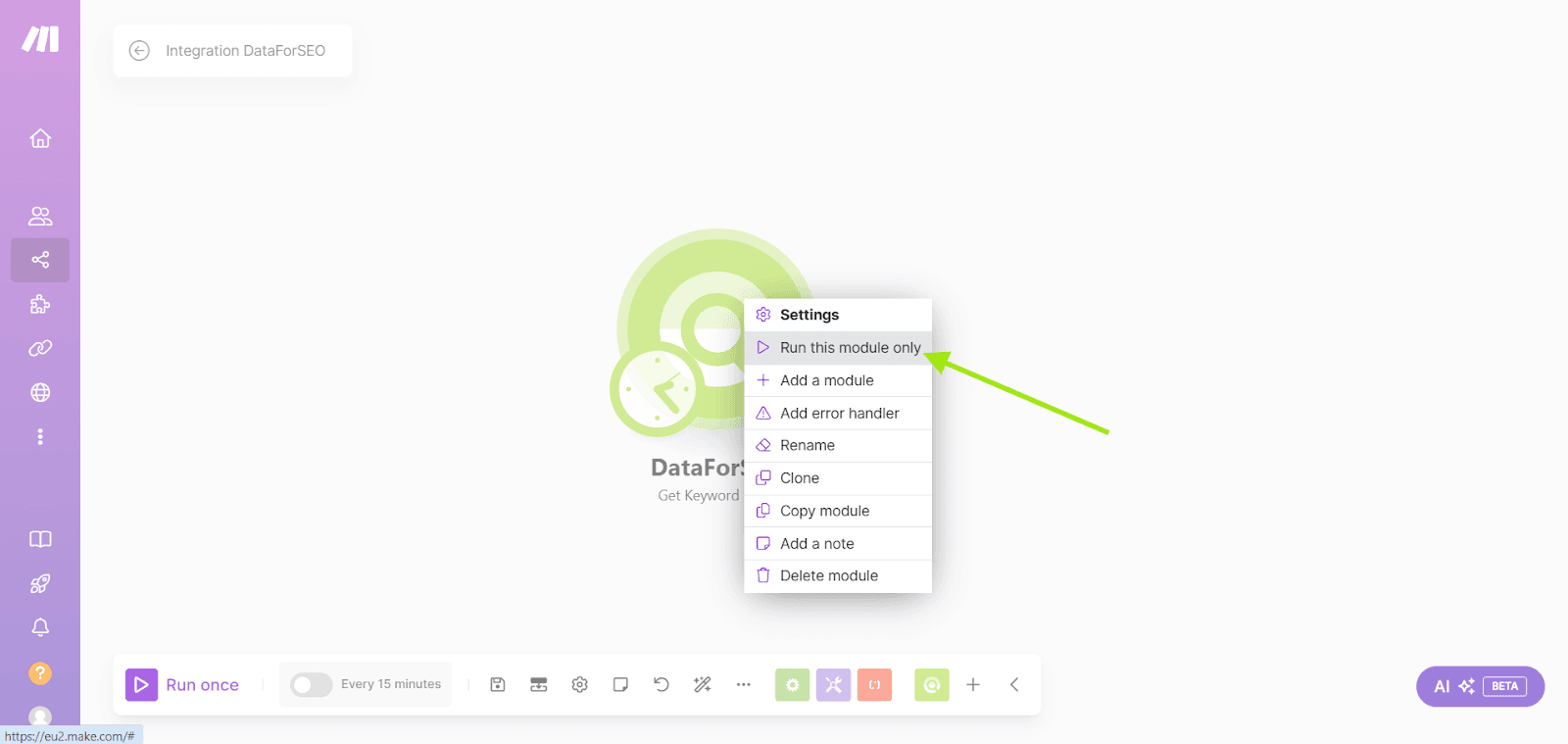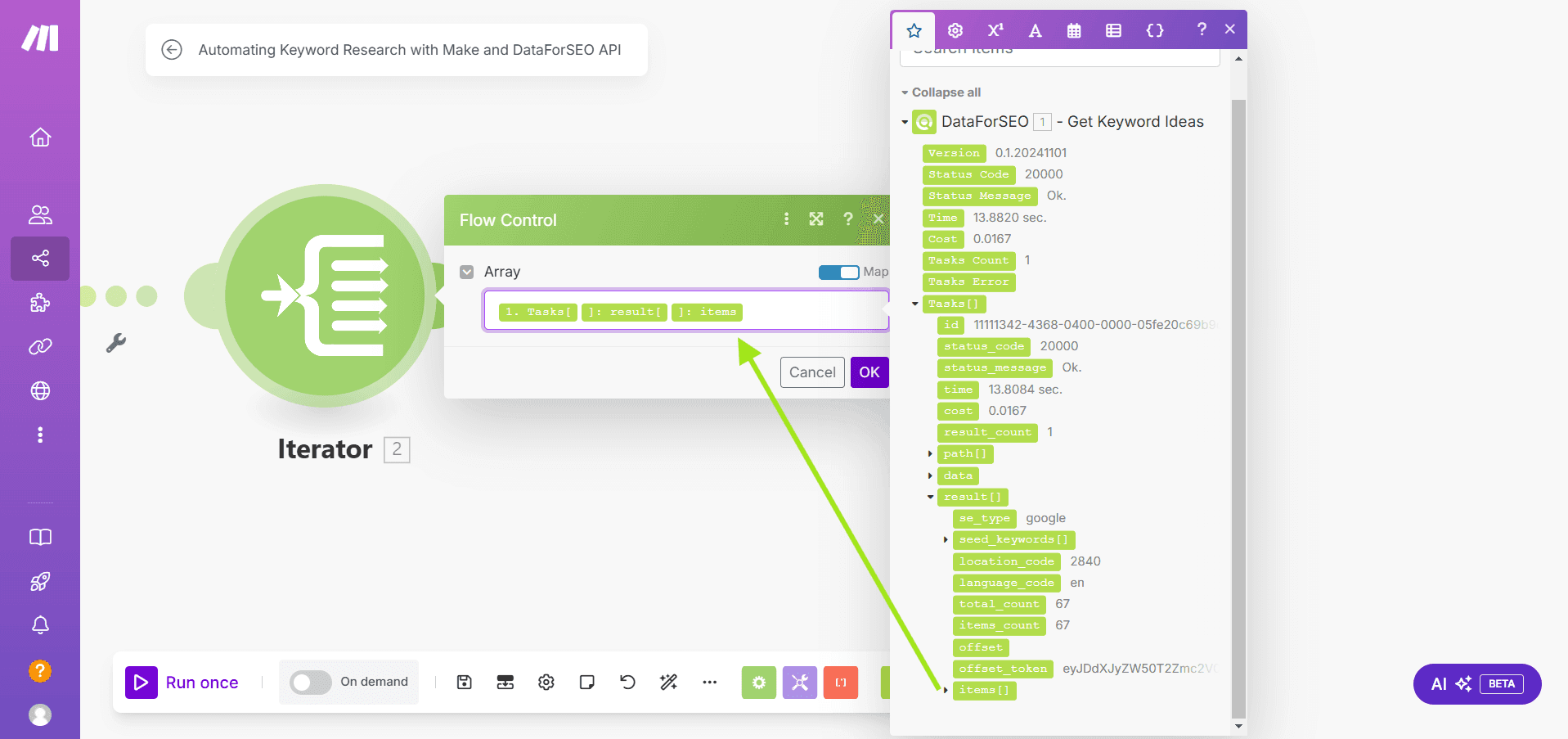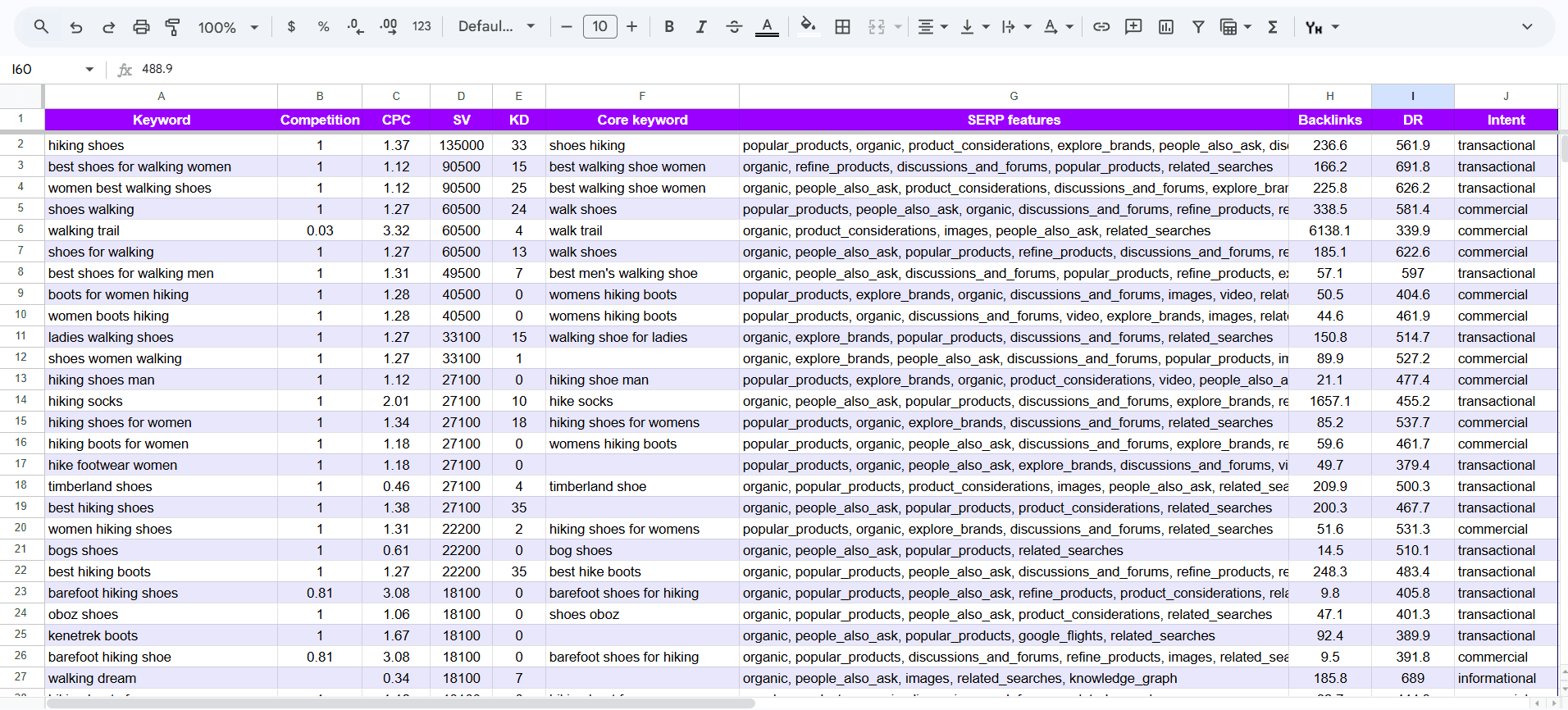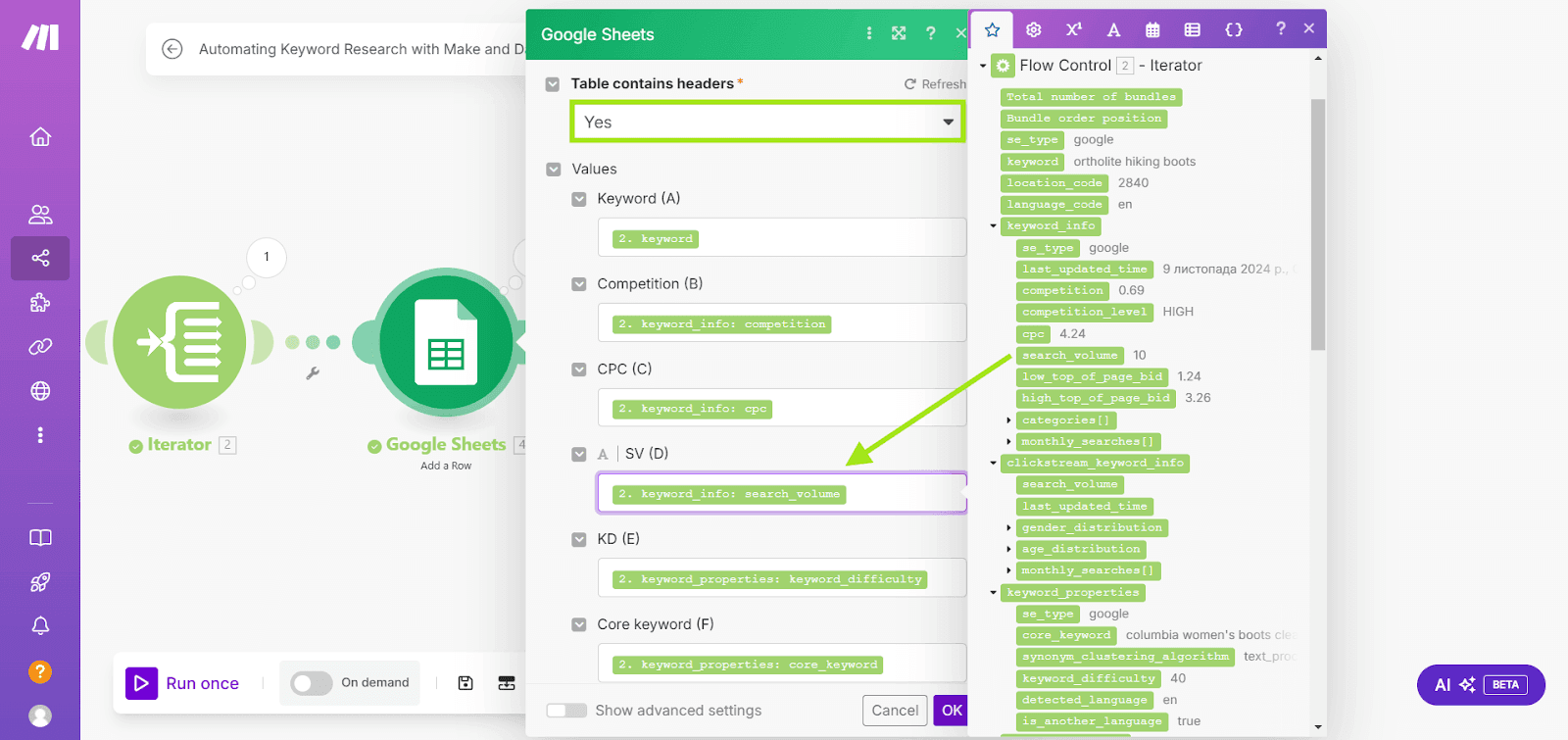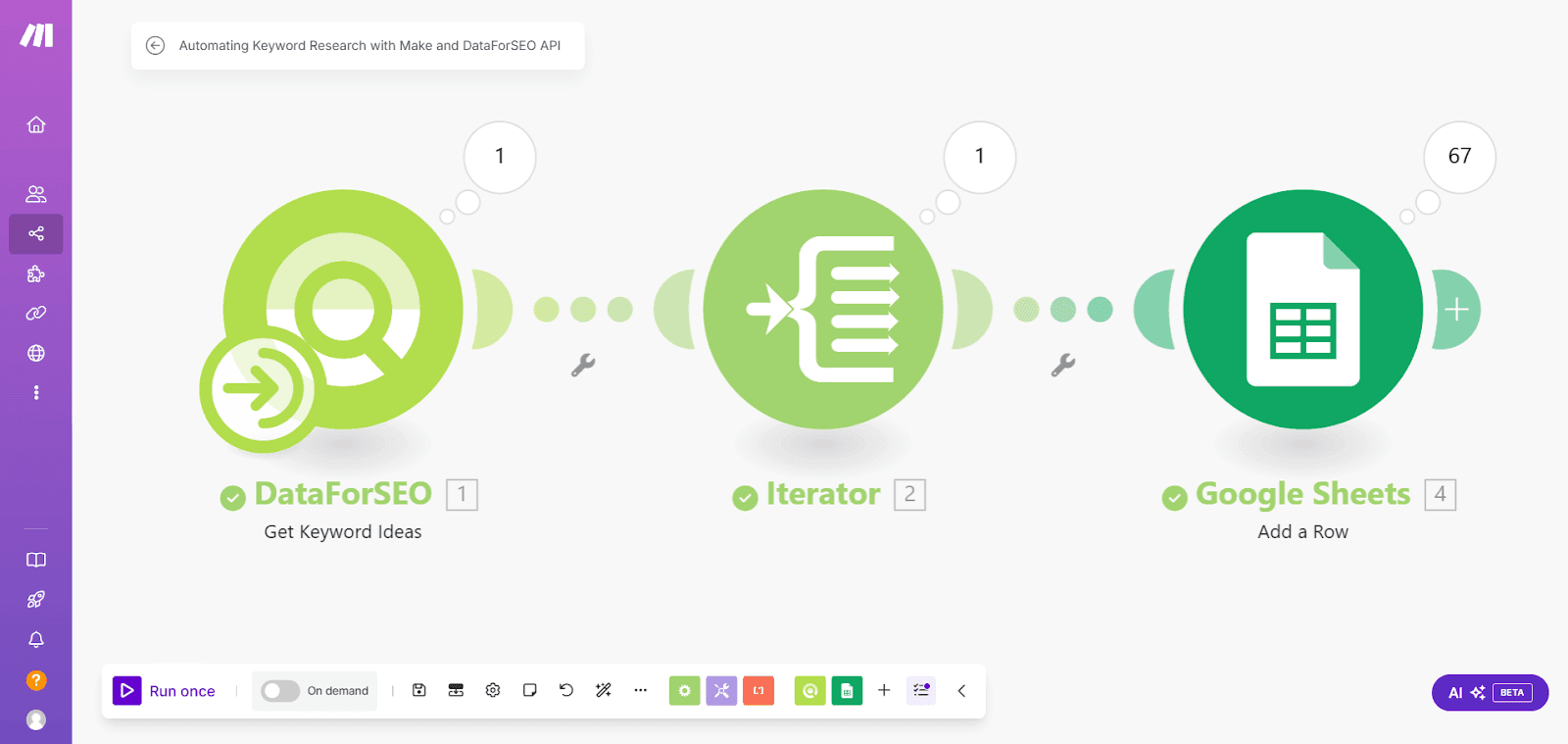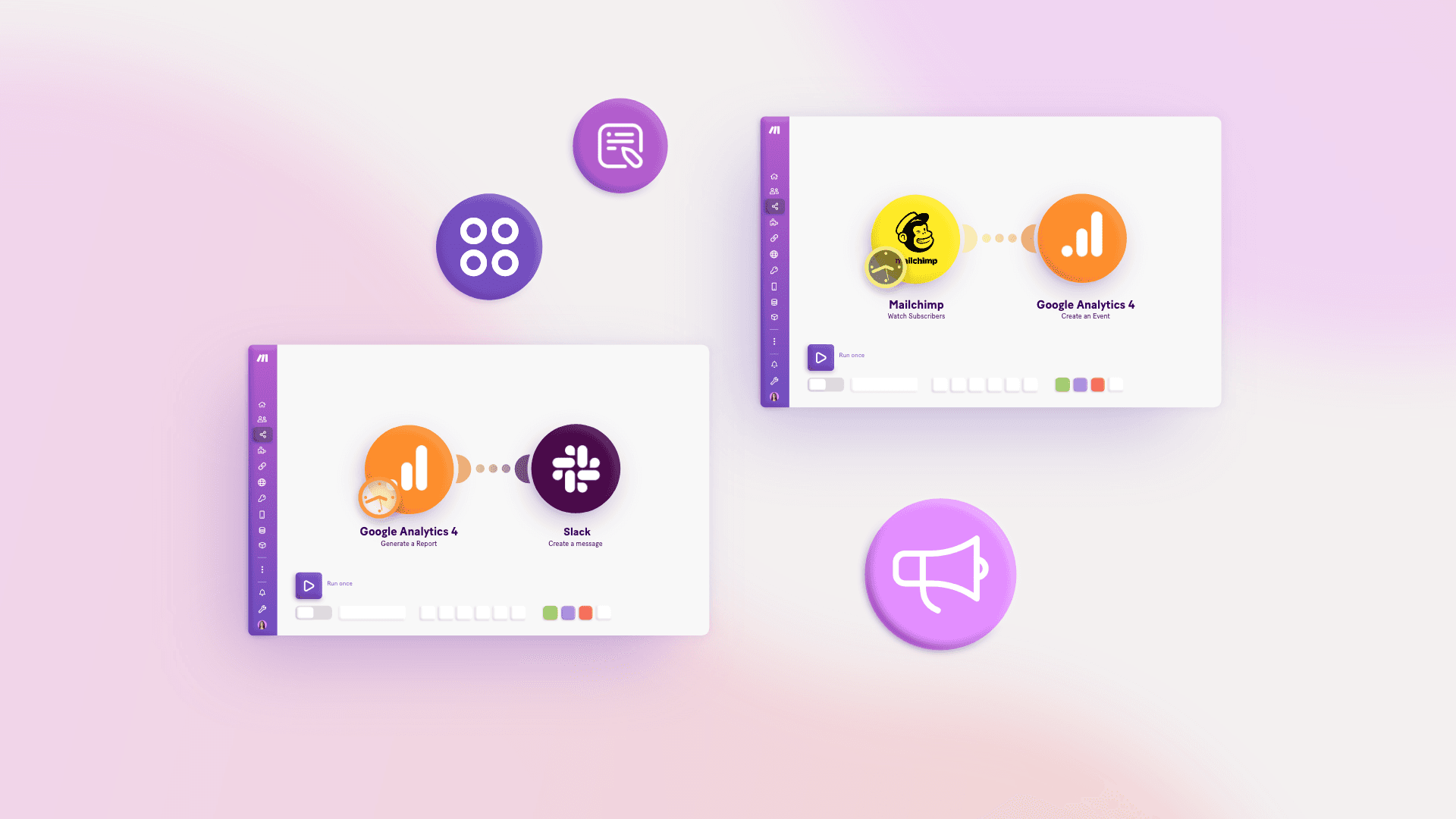Dec 2, 2024 | 5 minutes
Automate keyword research with Make and DataForSEO API

SEO is like a winter mountain hike. No matter how sturdy your boots or how sharp your instincts, guessing your way through to higher SERP rankings and increased traffic rarely works. To make sure your journey turns out successful, you need keyword research - a compass to guide your content creation in the right direction.
While keyword research is undeniably crucial, it can quickly become a daunting, time-draining task when done manually. But there is a better way to navigate these snowy paths: automation.
In this article, we’ll explore how to automate keyword research in a budget-friendly way using Make and DataForSEO API. From understanding why keywords matter to crafting streamlined workflows, we’ll cover everything you need to find the best terms easily, quickly, and affordably.
Why keyword research is key to SEO Success
When your potential customers tap into search engines like Google or Bing, the words and phrases they use reveal their needs and intentions. Keyword research is the process of discovering these phrases and picking the ones that truly matter. It’s also about understanding your audience and their journey.
Quality keyword research helps you target the right terms with the right content optimized for each stage of the funnel. Without this process, you risk missing quality traffic, sales, and conversions.
But as the complexity of SEO continues to grow, so do the challenges of keyword research, especially when you try to do it by hand.
The challenges of manual keyword research
Imagine trekking up winding trails with a heavy backpack. The climb is steep, the backpack is weighing you down, and every step demands more energy. Manual keyword research is just as slow and draining. Here’s why.
It takes a great deal of time, especially in competitive industries with vast keyword pools.
You’ll have to work with a mountain of data, which can be overwhelming.
Free tools like Google Keyword Planner often lack accuracy, and provide general estimates or outdated data.
Without quality automation or advanced tools, keyword research often lacks efficiency and yields limited insights.
You can stumble upon scalability issues due to the complexity of manual data collection and analysis.
But fear not! In the following sections, we’ll explore how automating your keyword research can help.
Why automate keyword research with Make and DataForSEO API?
Automation makes keyword research less of a grind and more like a pleasant ride. Plus, it’s much more flexible and cost-effective than traditional keyword research tools.
Here’s how Make and DataForSEO API working together can simplify your keyword research.
Make is a visual automation platform that lets you create simple tasks and complex workflows in minutes. Using its intuitive drag-and-drop interface, you can easily pull information with DataForSEO API into various apps, like Google Sheets, marketing, or CRM tools.
DataForSEO offers powerful APIs for accessing SEO and marketing data. Using DataForSEO Labs API, you can collect keyword ideas and all essential metrics like search volume, keyword difficulty, and search intent.
With the powerful combo of Make and DataForSEO Labs API, you can win back hours spent on manual tasks by setting up automation in just 5 minutes. Let’s see how to do it.
Step-by-step guide: automating keyword research with Make and DataForSEO API
In the steps below, we will walk through the process of building a keyword research automation with Make and DataForSEO API. We’ll show you how to integrate DataForSEO Labs API with Google Sheets as an example data repository. Feel free to swap it for Airtable or other tools that you prefer.
1. Log in to Make and go to Scenarios. Click Create a new scenario.
2. Add a new module by clicking the Plus bubble and searching for DataForSEO. You can choose from the following modules designed for keyword research:
Get Keyword Ideas - provides keywords that fall into the same Google product or service category as the specified terms, generating a list of broad, industry-related keyword ideas.
Get Keywords for Keywords - surfaces keywords directly related to the specified terms, focusing more on semantic and topical relevance rather than category.
Get Keyword Suggestions - delivers long-tail keywords containing the search term you specified.
Let’s pick Get Keyword Ideas. Now, select or create a Connection to your DataForSEO account. Enter your API login and password and save them.
Configure your request parameters. Let's imagine we want to get keyword ideas for "trekking shoes" in the US in the English language.
Including SERP data in the API response will help us identify keywords that trigger SERP features like product reviews, comparison tables, or list snippets. In this way, we can gain more visibility in front of users in the research phase and offer helpful insights to guide their purchasing decisions. We’ll also filter for keywords with moderate difficulty (30-60) to focus on those striking a balance between value and competition.
Additionally, we’ll prioritize keywords with high advertiser interest, valuable for more conversions, so we’ll filter for those with CPC above $1.
Long-tail keywords like "best lightweight women's hiking shoes" will allow us to reach audiences searching for specific features or niche products. These terms tend to have higher purchasing intent and are easier to rank for. We’ll use a Regex filter ^\S+(\s+\S+){2,4}$ to specify this.
Finally, we’ll target keywords with steady interest, perfect for evergreen content that drives consistent traffic. This means we can set the search volume filter to under 1,000 and sort our keywords by search volume in descending order.
Tip: Try using the Request Helper in DataForSEO AI Assistant to configure the necessary filters and sorting parameters quickly and easily. For instance, you can use a modified copy of this prompt.
Generate keyword ideas for "trekking shoes" in the US with the following criteria:
SERP Features data for each keyword.
Keyword Difficulty (KD) between 30 and 60.
CPC threshold above $1.
Phrase length between 3-5 words.
Search Volume (SV) below 1000, sorted in descending order.
When everything is configured here, click OK. Right-click the DataForSEO module and hit “Run this module only” to make sure your configuration works properly.
3. Add the Iterator module. This module helps you manage API response data flow in Make, ensuring each keyword’s data is processed individually. In the Array field, drag and drop the items array from the DataForSEO API response.
4. Add a Google Sheets module. In the Connection field, click Add and follow Make’s instructions to create a connection to your Google Drive (or select a previously created one from the list).
Select your target Spreadsheet and Sheet Name. We recommend creating one beforehand with the necessary column names (like Keyword, CPC, SV, KD) as in the example below.
In this case, you can set Table contains headers to Yes, and you’ll see your column names appear under Values. Now, it will be easier to define how the keyword data should be inserted in the spreadsheet. Just map the API response fields from Flow Control to the corresponding columns.
5. That’s it. Your keyword research workflow in Make will now automatically pull relevant terms and metrics with the DataForSEO API, process the data, and add it to your spreadsheet. Try hitting “Run once” to obtain your first keyword ideas.
Best practices for choosing your keywords
Once your automated keyword research workflow is ready, it’s time to add strategy and precision to your keyword analysis process. Here are a few proven tips that will make it easier for you:
Evaluate core metrics. Start by analyzing Search Volume, CPC, and Competition to understand how competitive keywords are and what their potential traffic value is. Look at search volume over long time spans to capture seasonal keywords when relevant.
Consider keyword difficulty. Balance high-traffic keywords with manageable difficulty to avoid over-competition.
Focus on search intent. Consider users’ goal behind the search query based on its intent (e.g., informational, navigational, commercial investigation, transactional). Create keyword clusters by search intent and map them to relevant blog posts and pages. Use the most popular term as the main keyword and other terms as supporting long-tail keywords. In this way, you can deliver more relevant content that matches the needs and expectations of your audience while also improving your SEO performance, as search engines will better understand and rank your content for different queries and intents.
Use long-tail keywords. Incorporate less competitive, more specific, and longer keywords. They allow you to reach niche audiences that are more likely to convert. Long-tail keywords can also give you insights into customer needs and suggest in-demand topics for creating content that resonates with your users.
These best practices will help you refine your keywords faster and more efficiently. With the right keyword mix, you’ll be well-equipped to drive traffic, write engaging pieces, and turn more searches into conversions.
Wrap-up
Doing keyword research with Make and DataForSEO API turns a boring time-consuming task into an easy automated workflow. Just like setting up basecamp before a mountain climb, automating keyword research frees up your energy for the journey ahead - deeper keyword analysis and the creative work that brings your content to life.
Set up this automation in Make now and enjoy the benefits of a data-driven keyword strategy!
Ready to make the automation revolution happen?


